Top Ten Most Fascinating Periods of Swedish History (Anno Domini)
Let's celebrate the Swedish national day on June 6th with this list about Swedish history. The most fascinating periods of Swedish history, however, it's Anno Domini (which is basically the years after year 9 in the gregorian calendar). Why am I only listing those? Well because they are what truly define Sweden, as I mean almost all European countries had stone age and stuff, didn't they? So with that being said, here's the list.
Viking Age (Vikingatiden): 793 - 1066 AD
I don't think I need to explain much. The vikings were among the most iconic people in all of Europe. Norse seafarers, who spoke the old norse language, discovered Iceland, Greenland and Vinland (North America). Now yes, I know the viking age is technically a part of the iron age, but I mean the viking age could be seen as its own thing as well. And yes, I mean yeah I know, the swedish vikings aren't that famous, as it was the norwegians and danish who mostly conquered lands and stuff, while the swedish vikings mostly did trade. But still, it's vikings. They top the list in my opinion. The viking age started when the island of lindisfarne was invaded by vikings, and ended when Sweden became christian.

Swedish Middle Ages (Medeltiden): 1066 - 1521 AD
The epoch that comes right after the viking age. During this epoch, Sweden became a christian nation, schools and education came to existence here in Sweden. and the unfortunate unfamous black plague came to Europe. So much interesting stuff. A lot of the monarchs in the later half of the swedish middle ages had pretty interesting intentions and actions overall, such as Magnus III and Birger Jarl (the later of which founded Stockholm, the present capital of Sweden). The epoch started when Sweden became christian and ended after the stockholm bloodbath (we'll talk more about it later)
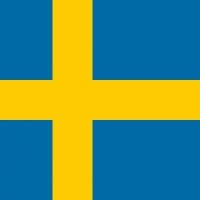 Sweden, officially the Kingdom of Sweden, is a Scandinavian country in Northern Europe.
Sweden, officially the Kingdom of Sweden, is a Scandinavian country in Northern Europe.It borders Norway to the west and Finland to the east, and is connected to Denmark in the southwest by a bridge-tunnel across the Öresund. At 450,295 square kilometers (173,860 sq mi), Sweden is the third-largest... read more
Swedish Empire (Stormaktstiden): 1611 - 1718 AD
The swedish empire years. The years when Sweden was at its biggest size and a superpower..., which it isn't anymore but hey, we were. At the start of the "Stormaktstiden", Sweden was originally a very poor and small country in war with all of its neighbours. The monarch known as Gustav II Adolf helped Sweden become a superpower and went in the thirty years' war, one of the most destructive wars of all time. I mean Sweden was always at war during its empire years, with the exception of when Karl XI was king. During his regime, Sweden experienced it's only years of peace during the empire's years, until Karl XII came and went to wars again. The swedish empire began when Karl IX died, and ended when Karl XII died.
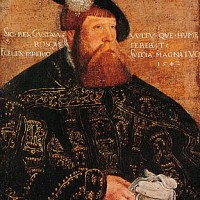
The Vasa Era (Vasatiden): 1523 - 1611 AD
The vasa era was the era when the house of Vasa ruled over Sweden (excluding Gustav II Adolf and his daughter as when he became king, the empire years started), pherhaps among the most important swedish king ruled over the first half of this epoch, known as Gustav Eriksson Vasa (Also keep in mind he was not who ordered the ship to be built, that was one of his grandchildren, Gustav II Adolf). Gustav Vasa is said to be the one who founded modern Sweden after freeing it from the kalmar union, a former country consisting of the scandinavian countries (but Sweden and Denmark were worst enemies back then you see). Gustav Vasa is seen as a hero because of this, in fact, Sweden's national day, June the 6th was the day he became king, on June the 6th of 1523. The vasa era began when Gustav Vasa became king, and ended when Karl IX died, and his son, Gustav II Adolf (The lion of the north) became king.
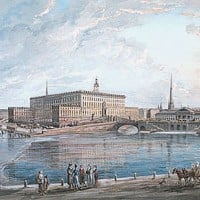
Age of Liberty (Frihetstiden): 1718 - 1772 AD
The epoch that started after Karl XII died. Sweden was a poor country after all the wars and the empire years have ended. People had gotten tired of the absolute monarchy and wars, and democracy came to Sweden. The power now went to the parliament and the monarchs lost their power, and political parties came to existence, the first two of Sweden being simply known as "caps" and "hats". With the democracy, freedom of speech was heavily improved, although you could still not criticize the regime. And this epoch began with the death of Karl XII, and ended when Gustav III performed a coup d'etat against the new regime.
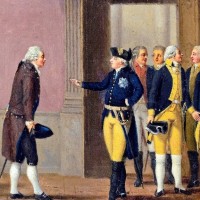
The Gustavian Era (Gustavianska Tiden): 1772 - 1809 AD
Taking place directly after the age of liberty, this epoch came around when Gustav III performed a coup d'etat against the swedish regime. Due to this, the monarchs gained the highest power once again like before the age of liberty. However it didn't last too long, as Gustav IV Adolf, second king of the gustavian era was overthrowm in 1809 and the democracy came back to Sweden.

Swedish Industrialisation (Industrialiseringen): Approximately 1850 - 1900 AD
Funny enough, the industrial revolution started in Great Britian, and it didn't come to Sweden until say a hundred years later. This was a very important part of swedish history because while life was not fun during this period, it was the beginning to the world we know today.

The current period Sweden is in, starting in 1991, when the moderate party (AKA Moderaterna, the currently biggest rightist political party in Sweden) for the first time won in the elections, and moderate politician Carl Bildt became prime minister of Sweden. Some people will say Sweden is uninterseting during this new modern era, but I don't. I feel like Sweden still has its proud and interesting cultures and traditions and customs and stuff. I feel proud to be a half-swedish guy and will always.
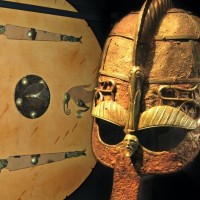
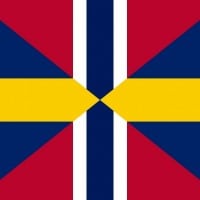
This was after the last king of the gustavian era, Gustav IV Adolf was overthrown during the year 1809 and Sweden and Norway became a union. While the two countries had seperate laws and stuff, they were still united in a way. And yeah I know this period ended even after the industrial revolution, so technically, the industrialisation took place during this period but still, it deserves its own item. It ended in 1904 when they dissolved. It's fascinating for me.
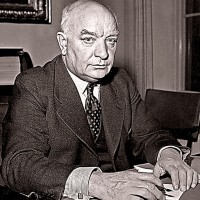
I'll exclude the years after 1991, and the years before 1905 as they are more considered their own periods but we're focosing on what came in-between, after the the industrial revolution in Sweden, and it began when Norway broke away from Sweden. Now I know the 20th century technically is divided in a few different epochs but all of them are generally similar to each other, as Sweden was neutral during both World Wars, yeah this is kinda when Sweden began staying neutral in conflicts and stuff. And they actually managed to stay out of both world wars, much like Switzerland and Ireland (alhough don't know if Ireland was part of World War I or not). That's kind of impressive.